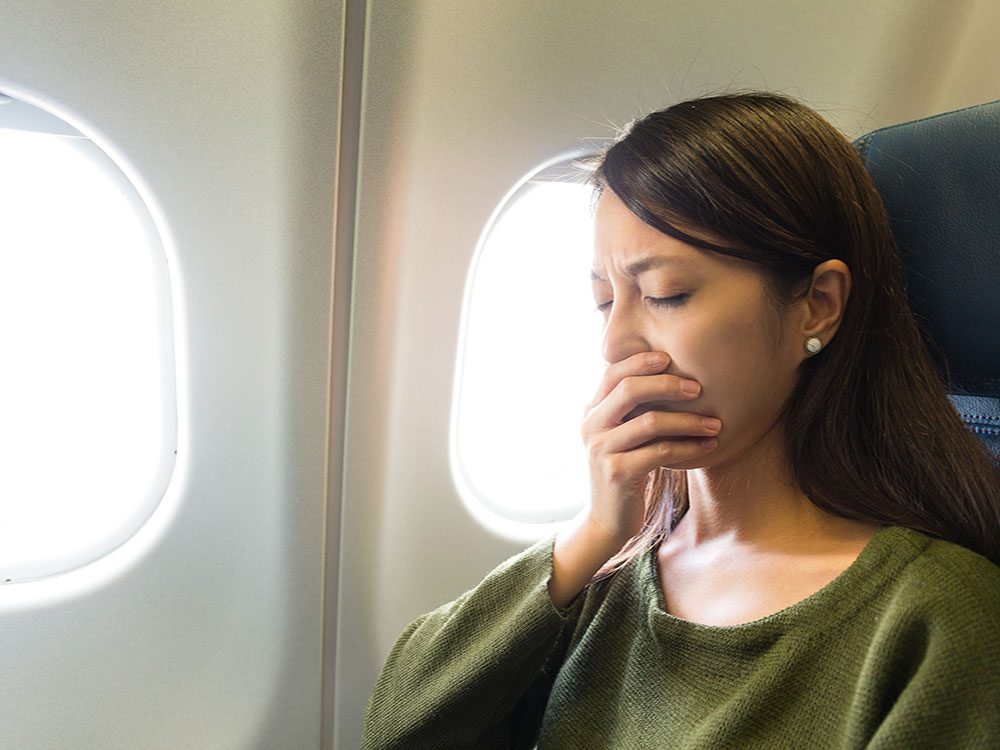
1. Low Oxygen May Make You Feel Sleepy or Headachy
Millions of people travel by plane every single day. If you’re planning on being one of them soon, you might not be looking forward to the yucky feeling flights often leave you with. Besides the airport crowds and stress, travelling at such a high altitude has real effects on the body. Although the barometric pressure of the cabin is adjusted to prevent altitude sickness, you could still experience sleepiness or a headache. “The lower oxygen pressure found in an aircraft cabin is equivalent to 6,000 to 8,000 feet [about 9,600-13,900 km] of altitude, similar to that of Mexico City,” says Paulo M. Alves, MD, global medical director of aviation health for the medical and travel safety services company MedAire. “Oxygen partial pressure drops accordingly, creating a mild hypoxia [low oxygen], which can cause headache in some susceptible individuals.” One study from the U.K. showed passengers’ oxygen levels dropped 4 per cent, which could be a concern if you have heart or lung problems. To help prevent headaches, drink plenty of water, and avoid alcohol and caffeine.
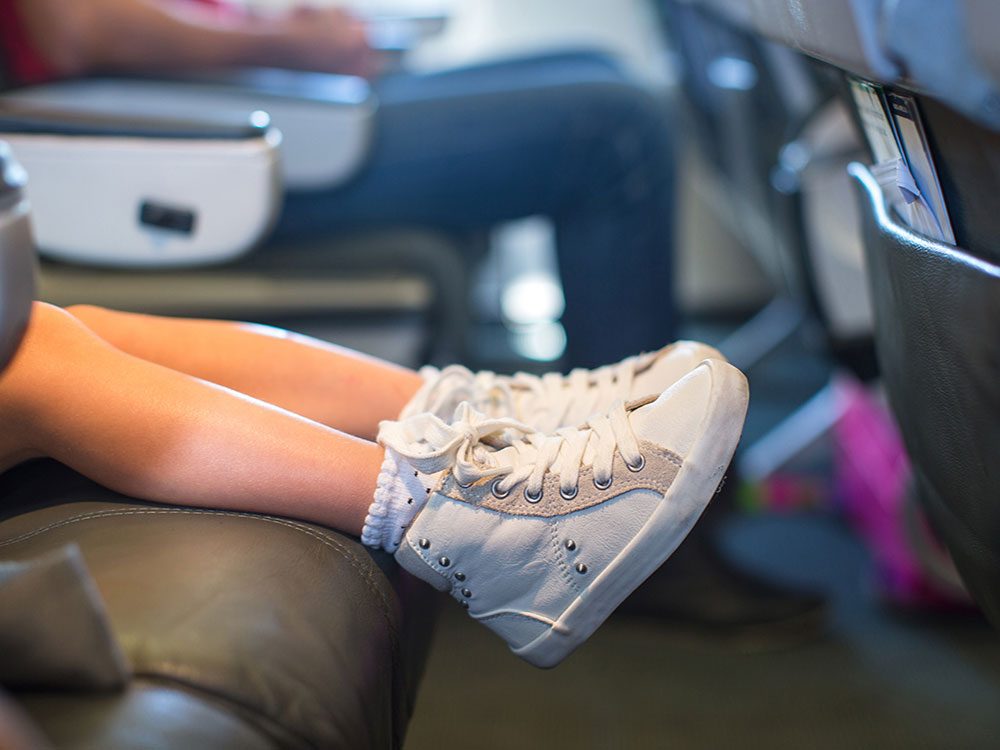
2. Blood Collecting in Your Feet Could Make Them Swell—or Worse
Sitting in tight quarters for hours and hours can affect blood flow throughout your body, leading to swelling in your feet and ankles. It’s also well established that the risk of a blood clot called deep vein thrombosis (DVT) increases when blood isn’t circulating well, as happens during flights. “In that position, the veins in our legs are compressed and the blood flow through them is slowed down,” Dr. Alves says. Although you often hear the advice to get up and walk around, Dr. Alves says that that can cause traffic jams if too many people do it at once, and can be dangerous in the case of unexpected turbulence. “Average travellers without any risk factors would benefit from simple movements of the ankle—rotation, flexion, extension—which can be done in their own seat as frequently as possible,” he says. Risk factors for DVT include being obese, pregnant or postpartum, on birth control pills, over age 40, or having a serious medical illness. “People with underlying risk factors for DVT benefit from compression stockings, and for some at high risk, even the use of anti-coagulant drugs may be indicated,” Dr. Alves says. Talk to your doctor if you have one or more risk factors and are planning a flight in the near future.
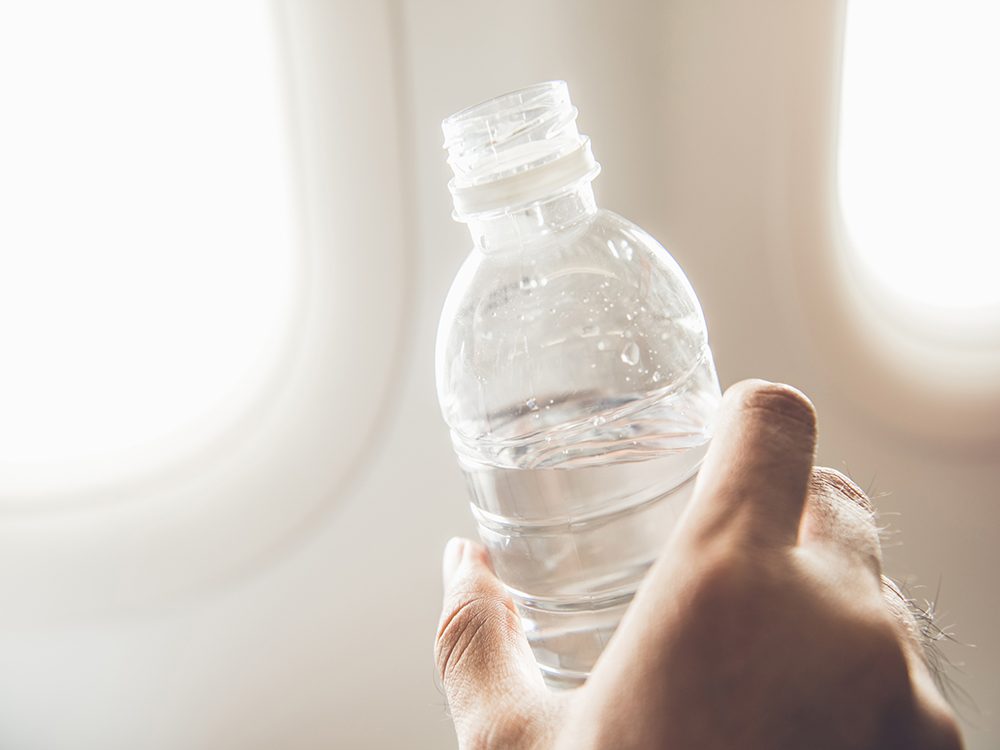
3. You Can Get Dehydrated
The air you breathe in the plane cabin actually comes from outside, and air at that altitude has very little moisture. “This air is very dry, having a humidity of under 10 per cent,” says Quay Snyder, MD, MSPH, president and CEO of Aviation Medicine Advisory Service. “Dehydration can lead to a feeling of fatigue, particularly when combined with the lowered pressure of cabin air. Medical conditions and some medications may exacerbate these sensations.” The best way to prevent dehydration during flights, according to Everyday Health, is to drink lots of water, even before you board the plane. Bring your own water bottle so you don’t have to rely on the flight attendants to get it for you. (Just don’t refill it in the bathroom sink, where the water is non-potable.) The Aerospace Medical Association also recommends using eyedrops to relieve dry eyes and consider saline nasal sprays to help dried-out nasal passages and prevent nosebleeds.
You should never take your shoes off on an airplane: Here’s why!
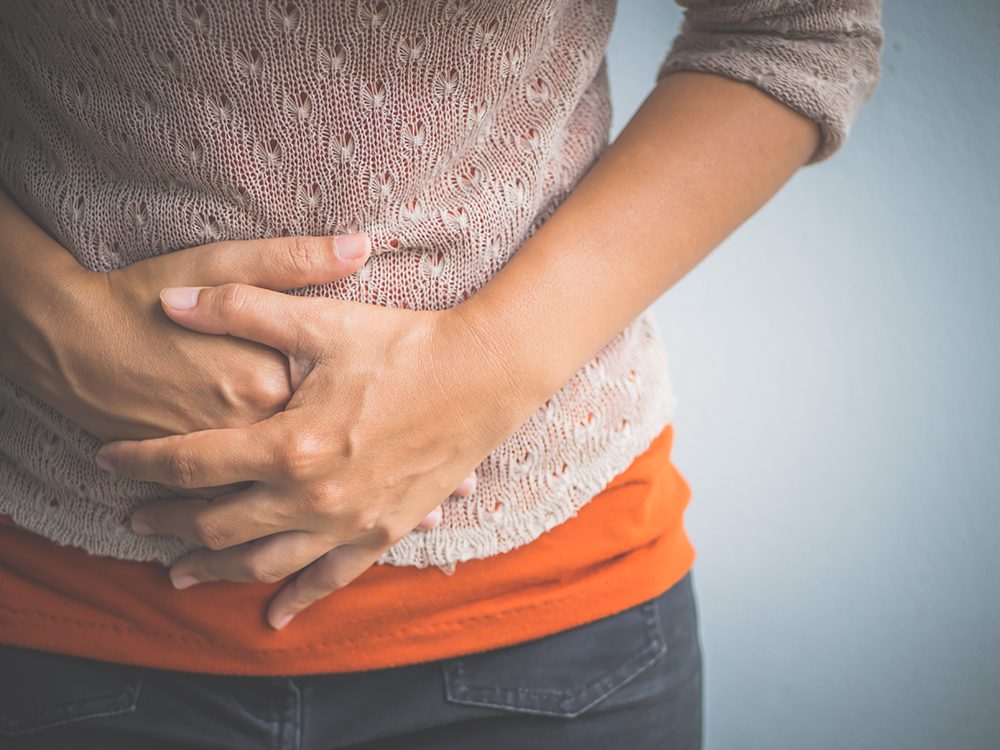
4. Shifts in Cabin Pressure Make You Gassy
You’re not just imagining the farting among your fellow travellers—studies have shown flatulence increases in the air. The Aerospace Medical Association says our body’s gas can expand up to 25 per cent! “We know from physics that gas tends to expand inversely to pressure,” Dr. Alves says. “Therefore, as we climb on a flight, the external pressure is progressively lower, and any gas trapped inside our body cavities will expand accordingly.” This includes the gas in your intestines, which can lead to bloating and the urge to break wind. So what should you do? Holding it in is not good for your body, so if you feel the pressure, it’s best to let it out—in the restroom if possible.
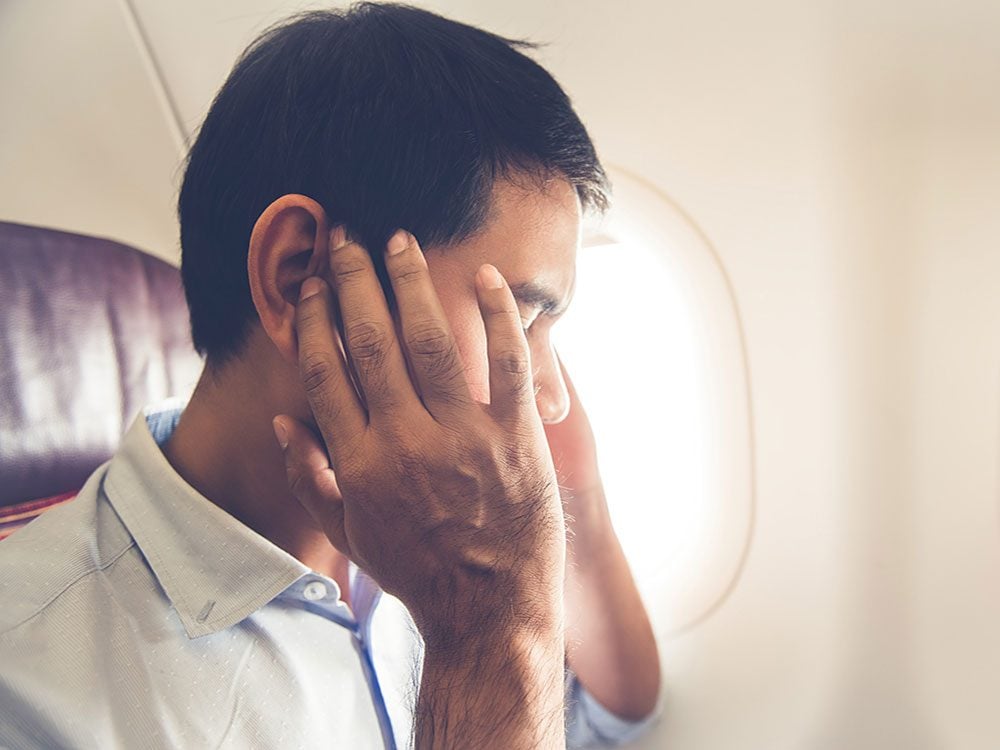
5. Air Pressure Changes Cause Your Ears to Pop
Along with an increase in gas in your intestines, your ears will likely feel the effects of shifts in air pressure. “As we ascend, gas expands, forcing the tympanic membrane to bulge outward, which gives us that well-known pressure sensation,” Dr. Alves says. “That continues until the point that the trapped air vents out through the Eustachian tube into our pharynx and the ears pop back to normal.” Chewing gum is helpful for this process. The opposite happens during the descent: The air pressure expands, so more air needs to move back into the middle ear. “This is accomplished by swallowing or yawning,” he says. “Another way to do it is to gently force air out of lungs, by covering our nose and mouth so that air is forced up through the Eustachian tube into the middle ear, equalizing pressures again.” Thankfully, this temporary ear pressure won’t have any lasting damage.
This is why you should never sleep during takeoff or landing.
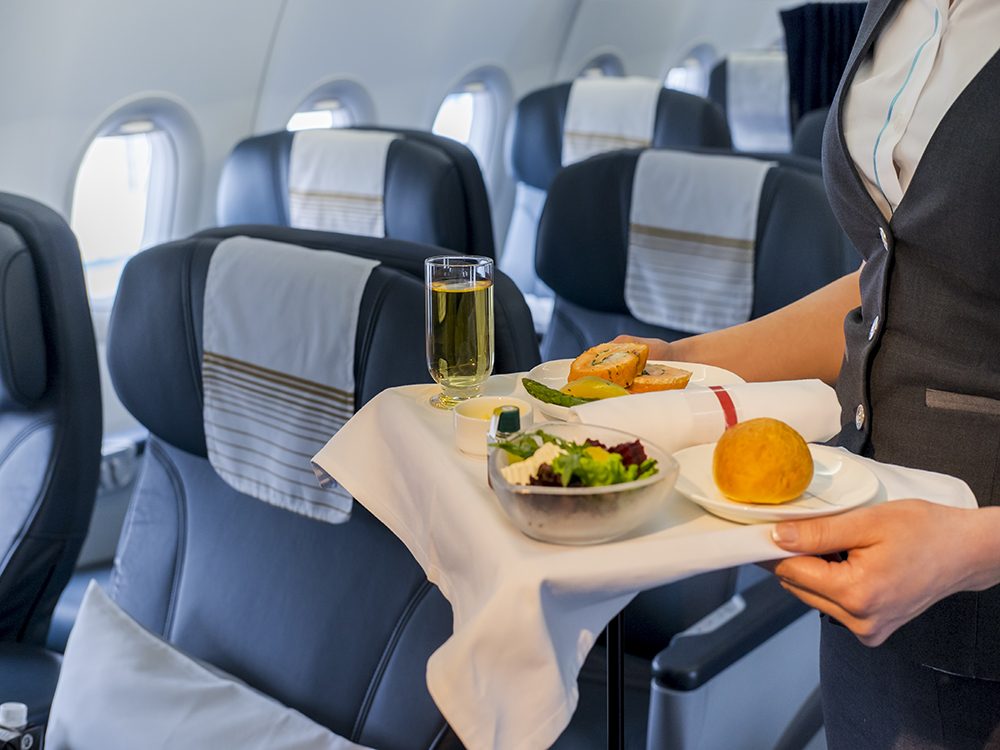
6. Your Taste Buds May Dull
That airplane food might not really be as bland and tasteless as you think. The low-humidity air you breathe in a plane dries out the mucous membranes of your mouth and nose, which can affect your sense of taste. A study by Lufthansa found that perception of sweet and salty foods dropped by up to 30 per cent in a simulation of air travel. British Airways has recently tried adding the savoury Japanese flavour umami to counteract this, but you can also help reactivate your taste buds by drinking water. “A dry mouth may reduce taste sensitivity, but taste is restored with hydration,” Dr. Snyder says.
Worried your plane is about to crash? Here’s the only survival guide you need.
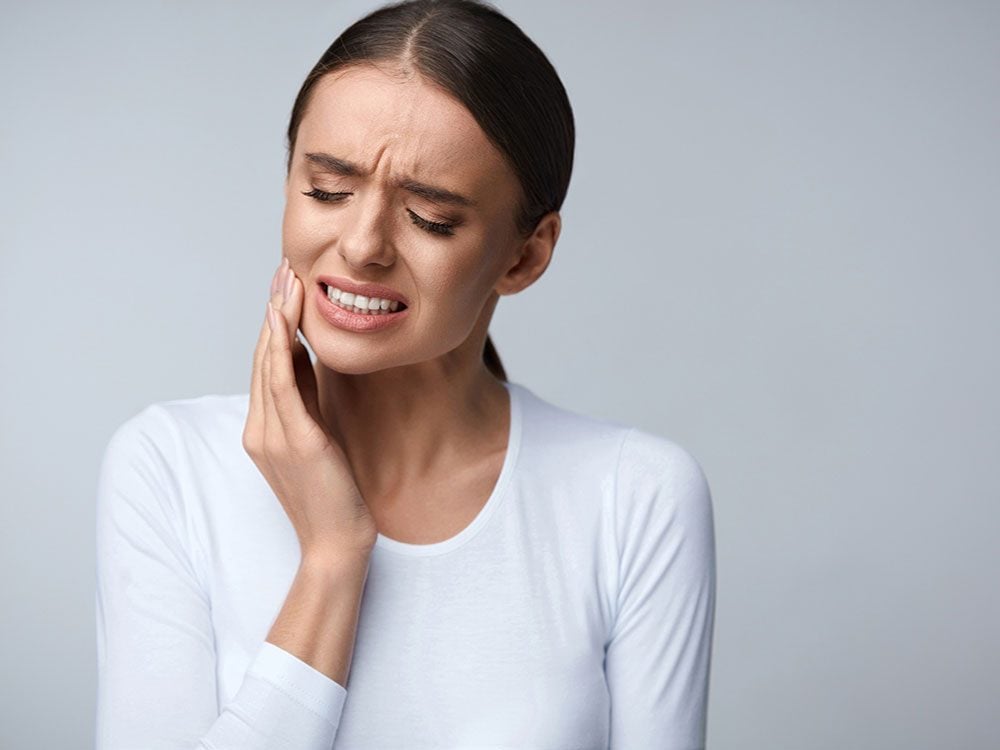
7. Air Shifts Can Cause a Toothache
Although less common, gas changes in our body can even affect our teeth, as gas gets trapped in fillings or cavities. “One of the drawbacks of the ‘airplane toothache’ is—unlike ear pain or sinus pain—there is little you can do to prevent it,” Thomas P. Connelly, DDS, told huffingtonpost.com. “In other words, chewing gum or swallowing isn’t going to relieve any pressure inside of your tooth. This makes air travel with a toothache a real problem.” You can take painkillers like Tylenol during flights to relieve symptoms, but if you have even a slight toothache, see your dentist before you’re scheduled to fly.
You should never do these 14 things on an airplane.
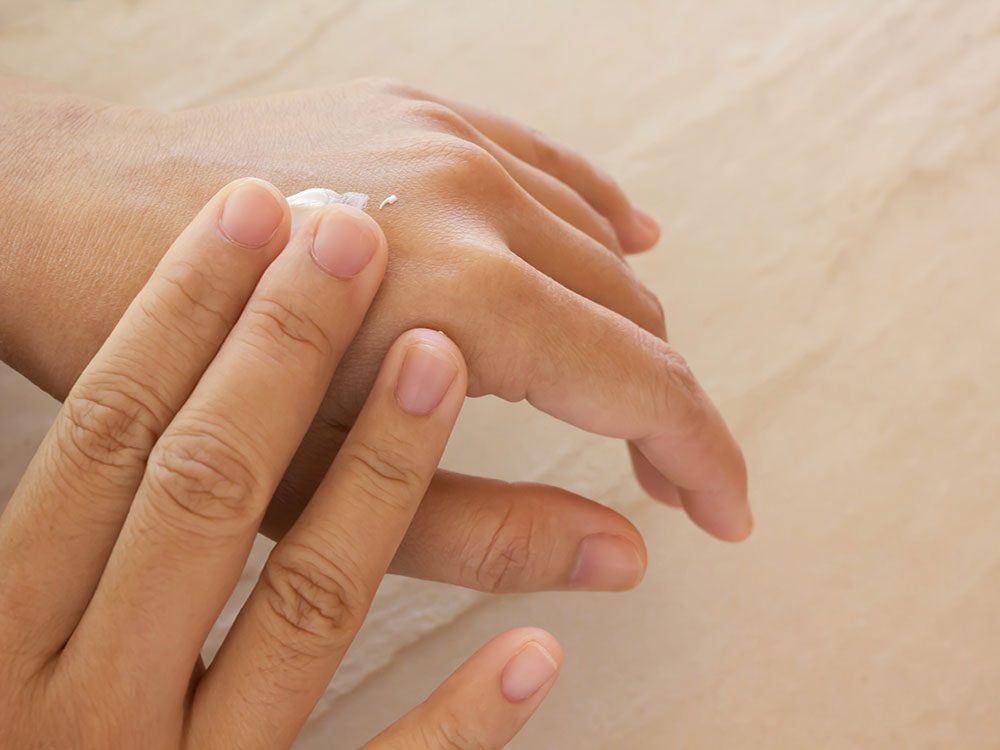
8. Your Skin Loses Moisture
Another effect of airplane air is dry skin. “Dehydration can lead to dry skin and cracked lips, although most exposure on aircraft is time-limited,” Dr. Snyder says. “Moisturizing lotions prior to flying can mitigate these effects.” Lotions are better than hydrating mists, which will just be sucked into the dry air, skin care expert Renée Rouleau told refinery29.com. Keep drinking water to keep your whole body hydrated, and wash your face when you get off the plane—Rouleau says exfoliating can help get rid of the dead cell buildup from dry skin that can, ironically, lead to acne.
Every frequent flyer needs these 10 accessories!

9. You Could Develop Bad Breath
When your mouth dries out on an airplane, you don’t have as much saliva, which can encourage bacteria growth and lead to bad breath. If you haven’t eaten, especially if you’re not drinking lots of water, you could have a secondary bout of “morning breath” later on. Sugary drinks and fast food also don’t help the problem. “The combination of a dry mouth and not brushing teeth on long flights may contribute to bad breath,” Dr. Snyder says. You can remedy this by bringing along your toothbrush (some airlines even supply you with one) and staying hydrated.
How did these two pilots survive crashing directly into the ocean?
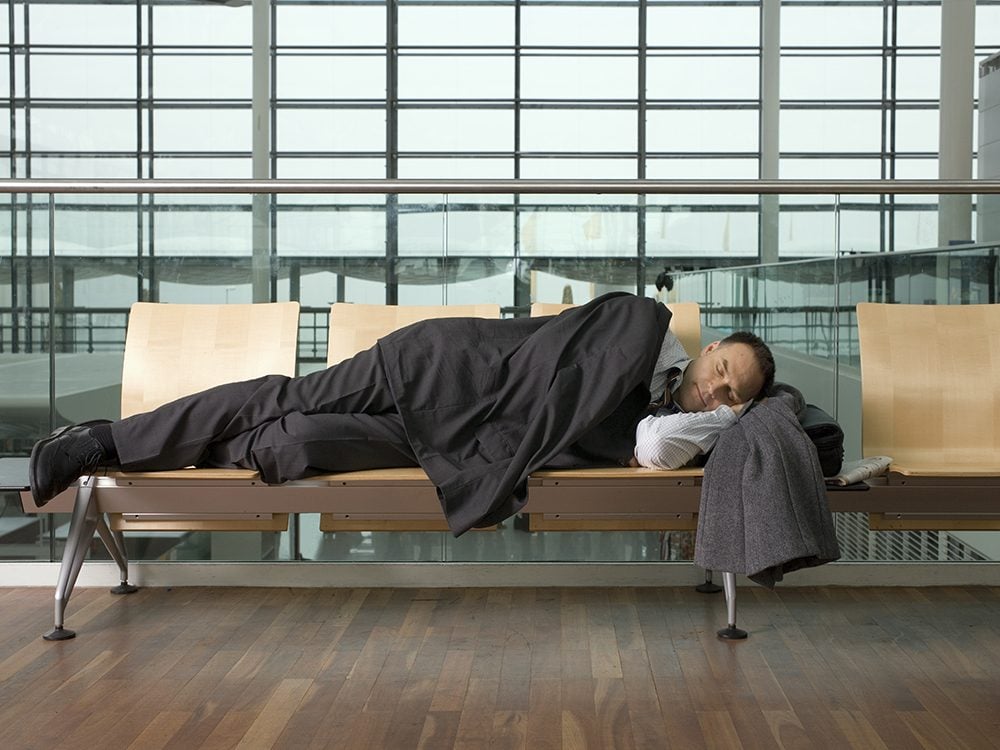
10. Long-Distance Flights Throw Off Your Circadian Rhythm
We’re talking about jet lag. “Hormone secretion, sleepiness, alertness, and hunger sensation, among other functions, depend on our internal clock,” Dr. Alves explains. Travelling to another time zone throws us off, and we need time to reset our clock. “The rule is that we need around one day for every hour of time zone we cross, so that means that after a six-hour transatlantic flight we would need around six days for our cycles to be fully re-synchronized with the local time,” he says. So what can you do if your trip is only a week long, or shorter? “On a quick turnaround business trip, it is frequently better not to try to truly adjust to a new time zone, since a full adaption would be impossible from the physiological standpoint,” he says. “On the other hand, if we want to maximize our stay on a touristic trip, it is better to try to adjust as quickly as possible, accomplished by exposing ourselves to sunlight and outdoor physical activity.” Because we are better able to adjust to a longer instead of a shorter day, flights from east to west are easier than flights west to east.
This teenager made a hang-glider—but could he ever achieve his dream of flying?
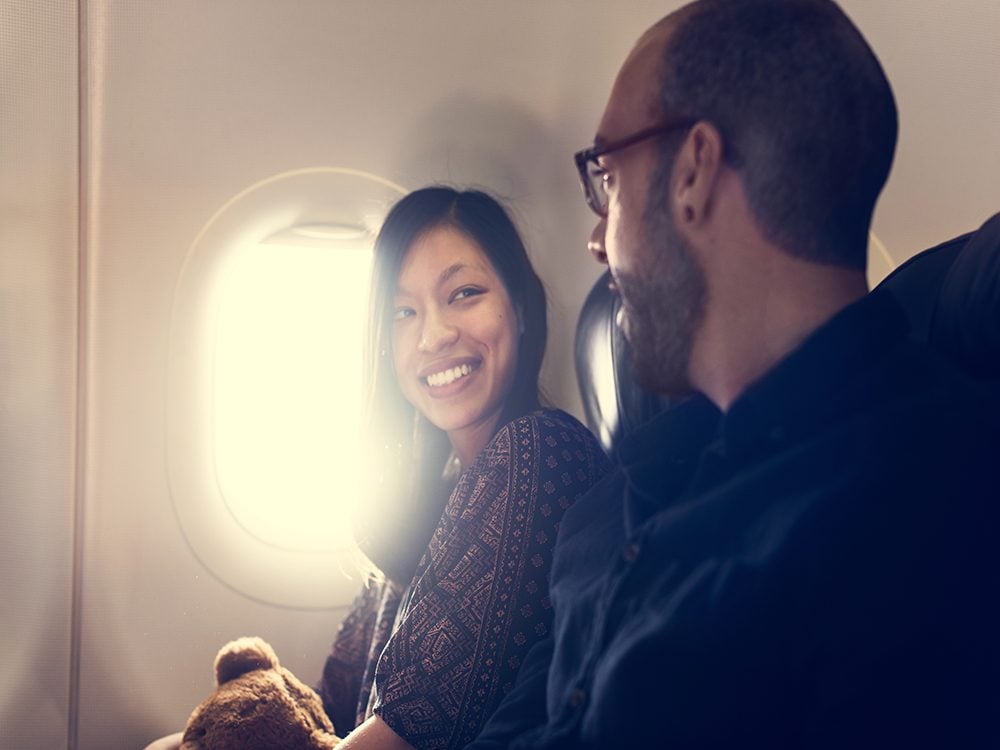
11. You May Not Actually Get Sick
Although airborne infections thrive in low-humidity environments like airplanes, your risk of getting sick from an airplane is actually low because of the HEPA filters used. “The advantage is that the air in the cabin is exchanged more frequently than in most industrial buildings, schools, or homes,” Dr. Snyder says. “This exchange rate, coupled with the filtering and circulation patterns, reduces the risk of airborne infections in aircraft from other passengers or crew compared to the non-flying environment.” Unless you’re sitting next to someone who is coughing or sneezing into your personal personal space, you shouldn’t worry too much about getting sick during flights. However, bacteria has been shown to live on cabin surfaces, so wash your hands frequently and keep them out of your eyes, ears, nose, and mouth.
Here are 6 easy ways to stay calm during your next plane ride.